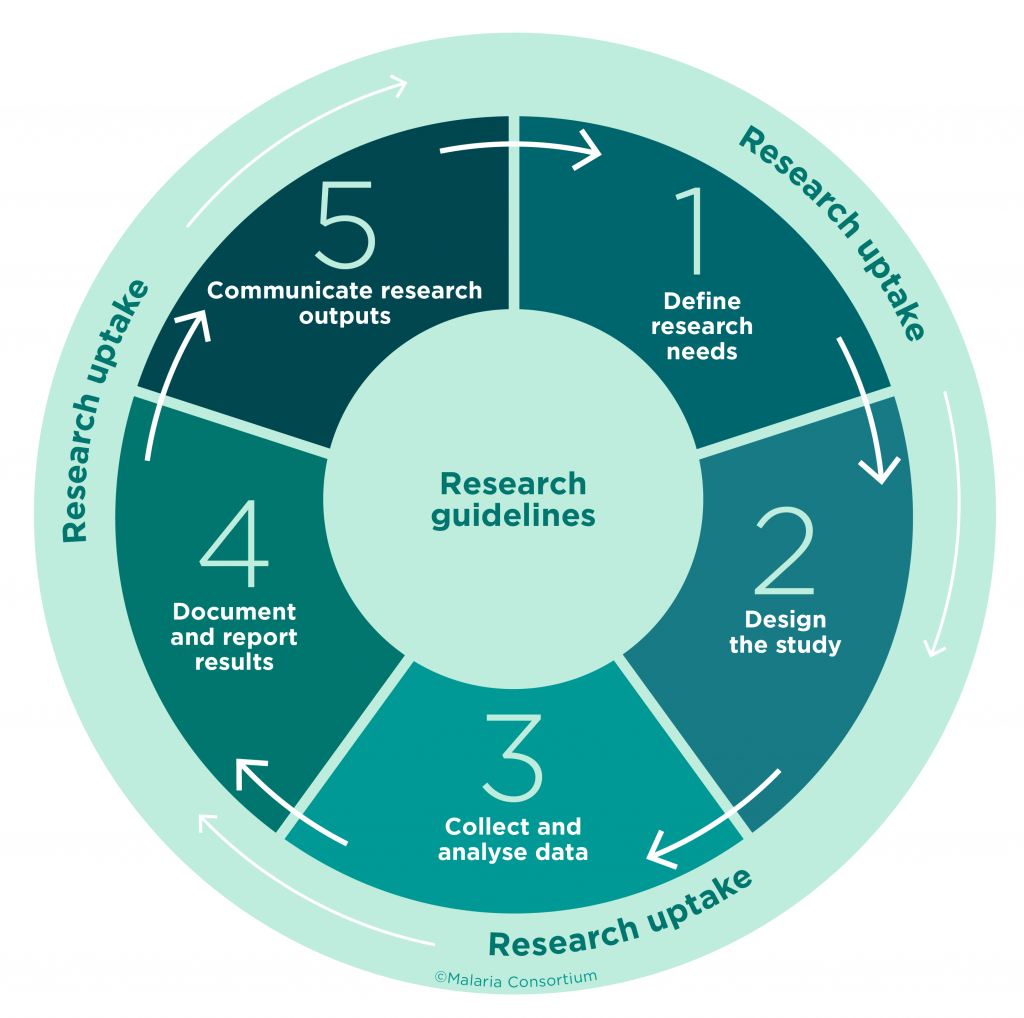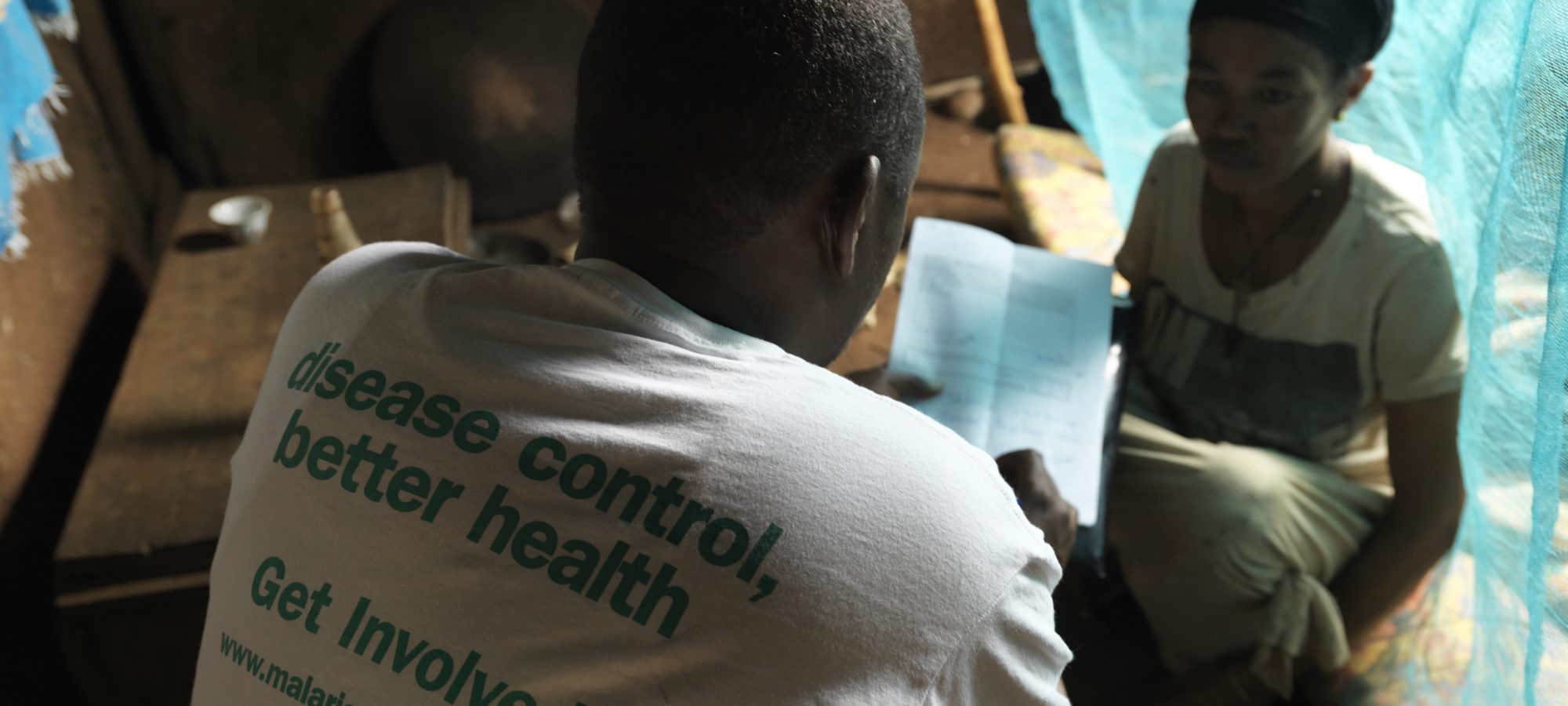When Malaria Consortium formed as an NGO in 2003 there was no ambition to duplicate the work of other organisations working in the sector, but instead to address a gap that had emerged: the absence of embedded implementation and operational research within programmes and projects. If we were to achieve our mission to improve lives in Africa and Asia through combating malaria and other communicable diseases, we needed to ensure research-based evidence was both acquired and used continuously to improve programme design, performance and impact on policy and practice.
To achieve this, we have spent more than 15 years establishing and strengthening the necessary infrastructure to design and implement high quality research. Research conducted within our programmes differs from traditional academic research; the evidence generated is often more immediate, relevant and frequently offers practical solutions. Our researchers differ, too – drawing on diverse backgrounds and experiences, they are skilled in their ability to pinpoint research questions that matter most for programmes and align with country priorities.
A recent report by Bond and the Open University underlined both the importance and complexity of research conducted by NGOs. The challenges include harmonising research culture across organisations, working remotely across distances and languages, effective collaboration with academic partners and ensuring credible and high-quality outputs.
Malaria Consortium has not been immune to the challenges outlined above and has over time developed strong research capacity and a thoughtful strategy to support researchers and research practices across the organisation.
Ensuring credible and high-quality research
Working across continents and countries, with diverse health systems and policies, means research priorities and questions vary, while our limited resources mean we cannot tackle everything we might wish to. We have therefore developed a research strategy that clearly outlines how we approach research within the organisation, how our research aligns with Malaria Consortium’s business areas and organisational strategy, and how our work fits into the global research agenda. The strategy is coupled with research guidelines which support our teams around the world to plan, develop and conduct high-quality, relevant research that helps improve our programmes but also generates evidence that can influence policy and practice at national and r egional level.
egional level.
Our research cycle (right) offers a simple guide to the stages involved in conducting research at Malaria Consortium.
Overcoming distance
Malaria Consortium’s programmes stretch across continents, from as far south as Maputo in Africa to Phnom Penh in Southeast Asia. Maintaining research standards and integrity across these distances and among teams with diverse research skills and experience is a major challenge. We have sought practical solutions to ensure coherence and consistency in our research and provide adequate space to discuss common challenges to carrying out research in different locations and programmes. Our Community of Practice for research meets regularly and is a simple and effective way of encouraging dialogue on research that is in development, ongoing or at completion. More than 20 colleagues regularly attend and participate in lively discussion on methods, approaches and new ideas and practices and solutions.
Another means of overcoming distance and bringing our dispersed research community together has been through our regional research capacity strengthening workshops. Held over a week in each of our regional hubs in Abuja, Kampala and Phnom Penh, the workshops have brought together technical coordinators, data managers and others with research interests to introduce Malaria Consortium resources for good research practice, and support participants to identify research questions and develop priority topics, some of which have already led to funding.
Research integrity and governance
Academic research institutions have well-established processes for reviewing and approving research conducted by their staff. However, due to differing remits and ways of working, such processes are not easily duplicated within international NGOs. In order to be recognised as an organisation able to conduct innovative and high-quality research, we ensure the necessary governance systems are in place. We have a research integrity statement, in which we endorse the Concordat to Support Research Integrity published by Universities UK in 2012, and have set out our expectations regarding research standards and behaviours. We have also provided the necessary resources to help staff comply with commitments set out in the Concordat.
Our partnership with the Liverpool School of Tropical Medicine’s Research Ethics Committee ensures that all our research and evaluation activities that involve human participants are subject to appropriate consideration against, and comply with, established ethical frameworks. Our Research and Evaluation Ethics Policy offers guidance to researchers on protecting the rights and welfare of people enrolled in research conducted by Malaria Consortium. Alongside this, our Research Misconduct Policy outlines the procedure in place for handling allegations of misconduct in research.
Research collaboration and partnerships: spotlight on COMDIS-HSD and ARIDA
COMDIS-HSD was a DFID-funded Research Programme Consortium (RPC) that carried out implementation research to improve health service delivery for underserved populations between 2011 and 2018. Under the leadership of the Nuffield Centre for International Health and Development at the University of Leeds, COMDIS-HSD brought together researchers and implementers from research organisations and NGOs in Bangladesh, Nepal, Pakistan, China, Swaziland and the UK. Malaria Consortium’s COMDIS-HSD research projects included a study testing the use of text messages to increase uptake of intermittent preventive treatment in pregnancy (IPTp), a life-saving intervention to prevent malaria infection during pregnancy in Uganda, and a study exploring the use of Community Dialogue to strengthen prevention and control of schistosomiasis in Mozambique. All studies followed an embedded approach, which involved designing, conducting and replicating research embedded within Ministry of Health and national disease programmes. For Malaria Consortium, participating in COMDIS-HSD provided the chance to collaborate with a prestigious academic institution with access to the university’s technical expertise and experience, which resulted in strengthening the organisation’s research capacity. The partnership resulted in a number of publications in peer-reviewed journals, participation in international conferences, as well as changes in health policy and practice. For example, in Uganda, educational text messages about malaria in pregnancy and IPTp are now part of the national health worker training curriculum.
The Acute Respiratory Infection Diagnostic Aids (ARIDA) project, sponsored by UNICEF Supply Division and funded by “la Caixa” foundation, was a standalone research project that tested the performance, usability and acceptability of two new pneumonia diagnostic aids in Ethiopia and Nepal between 2016 and 2019. The project was delivered through a unique partnership between Malaria Consortium, UNICEF Supply Division and UNICEF Programme Division who provided technical oversight to the studies, as well as Malaria Consortium Ethiopia and HERD International who conducted the research in the two countries. UNICEF country offices in Ethiopia and Nepal also played a part in supporting the in-country ethical review, setting up the research sites and engaging with Ministries of Health. With this strong technical and operational partnership, it was possible to conduct three field trials in two countries, with results to be published in peer-review publications in 2019.
Continuous review and forward thinking
Our approach to research is also designed to evolve to futureproof the organisation and take changes in the global agenda into account. As Malaria Consortium’s organisational strategy is being renewed in 2020, the research strategy will be reconsidered and aligned with the direction of the organisation’s priorities. Malaria Consortium also provides an internal Research Fund to support innovative research ideas or research capacity strengthening activities. The work carried out under this fund supports Malaria Consortium’s position as a technical thought leader, helps leverage other funding, builds on research gains from existing programmes and promotes innovation.
In addition, we are engaging in new ways with academic institutions; developing new collaborative research and strengthening research capacity through hosting postgraduate students and identifying opportunities for staff to pursue academic qualifications. In the long term, we will work towards independent research organisation status, which will open up new funding opportunities.
Malaria Consortium’s research strategy is also designed to contribute to the wider international research agenda. In effect, this occurs through several groups and forums in which research is shared and learnings discussed. A good example is the Every Breath Counts Research Group, led by Malaria Consortium in partnership with the University of Southampton and JustActions. The group encourages knowledge sharing within the pneumonia research community, map out research priorities and close knowledge gaps.
“Malaria Consortium’s reputation as an organisation able to conduct high-quality research rests on our underlying research capacity and capability. That is why the research infrastructure we have worked hard to put in place is so important – it helps champion excellence and set the bar for high quality research, brings consistency to our approach and identifies innovative ways to strengthen our capacity to conduct credible research”.
James Tibenderana, Global Technical Director
“As we move into the new five-year strategic plan, we intend to implement a research priority setting process that includes key stakeholders, strengthens partnerships for research and promotes country ownership of the research that is carried out. With these research priorities and partners identified, the research infrastructure we have put in place will support high-quality, relevant research with the maximum likelihood of influencing policy and practice.”
Kevin Baker, Research Specialist
Read more
Malaria Consortium’s research capacity statement
Charlotte Ward is Senior Research Officer at Malaria Consortium
